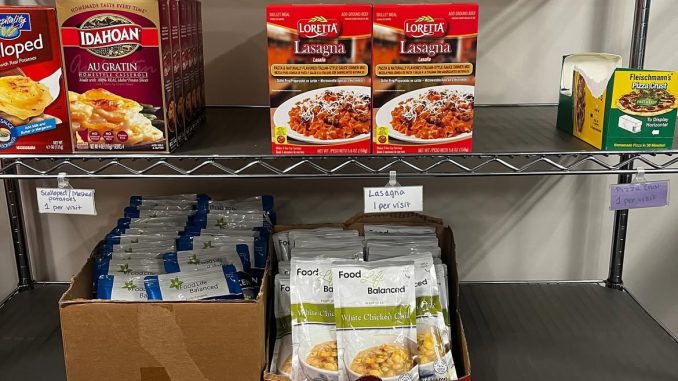
On Feb. 20, Qomunidad, an LGBTQ+ and Latinx campus organization, hosted their second of three V.O.I.C.E.S events in honor of Black History Month. Throughout the month of February, the club will host this series honoring the experience of Black Americans, including a New Paltz Food Pantry Town Hall, Black art celebration and an African American Vernacular English (AAVE) sign language event. V.O.I.C.E.S is an acronym for “vibrant, organized, inclusive, community, empowerment, series.”
Held in Student Union Building (SUB) room 414, the night’s event focused on the celebration of Black art with a series of engaging, interactive activities for attendees, including bilateral mirror drawings, a playlist compilation of attendees’ favorite Black artists and a presentation from Professor Asilia Franklin-Phipps.
Qomunidad describes itself as a “space that caters to the energetic LGBTQIA+ and Latinx/e community,” that takes “great pride in carrying on the long legacy of our flamboyant resistance,” according the group’s Instagram profile. In the last two years, they have often collaborated with other SUNY New Paltz clubs and organizations, including the New Paltz Drag Collective and Justice Is Global. This past year, they have organized a number of benefits related to the Palestinian Children’s Relief Fund, Operation Olive Branch, Ninos del Lago (a Guatemalan children’s non-profit organization) and the SUNY New Paltz Food Pantry.
Most recently, as part of their V.O.I.C.E.S series, Qomunidad held a food pantry town hall event on Feb. 18 in SUB 416, focusing on the issue of food inequity on campus. Town hall events allow SUNY New Paltz students to voice their concerns over a wide range of issues on-campus that impact students on a day-to-day basis. Lukas Cortes, president of Qomunidad, explained the challenges many students face at the hands of food inequity.
“It’s more than [food concerns],” Cortes said. “It’s what we call food inequity on campus; not being able to get the necessary things while paying a lot of money.”
Ulster County has historically had one of the highest rates of food insecurity, according to the Ulster County Community Health Assessment. Overall poverty and food insecurity rates increased at the onset of the COVID-19 pandemic, rising 9% in 2021, while child food insecurity rose by 6%. Cortes and fellow members of Qomunidad felt that addressing these growing needs among peers was key in improving the wellbeing of all New Paltz students.
“This was one of our first efforts with the Food Pantry, because they’re at full capacity right now. People are relying on the food pantry as a main source of food, which is not the reason why the food pantry exists,” said Cortes.
At the town hall, members of the club took a survey questionnaire of student attendees’ responses regarding the issues at stake. These results, Cortes explained, will be sent to the SUNY New Paltz administration.
“It’s qualitative data that we’re going to take and we’re going to take it to the upper level,” Cortes said. “We’re going to keep pushing until something happens, especially because of the renovations that are going to happen, [as well as] the future generations that are going to have less food than right now.”
The second night of Qomunidad’s V.O.I.C.E.S series celebrated the culture and history of Black art with a number of interactive events for attendees. The event, initially slated to begin at 6 p.m., was postponed to a later time, though Cortes detailed the night’s plans to The Oracle.
“This event was just focused on Black art, the history of it, and how you can use something called a bilateral mirror drawing,” Cortes said.
A bilateral mirror drawing is a collaborative art activity in which two people simultaneously draw on a shared piece of paper, mirroring their partner’s movements and drawing patterns to create a symmetrical image. It is often used in art therapy as an exercise to induce self-soothing and to “warm up” the brain.
“You basically have to pay attention to their movements and mirror them, so then you come up with something that you can only come up with if you do it with another person,” Cortes explained. “It’s used a lot in Montessori classrooms, and we thought it very much tied into the event today, because it’s kind of like this togetherness, this history that we create in the present.”
Qomunidad also encouraged attendees to pre-select one of their favorite songs by a Black artist to collect into a group playlist to be taken home at the end of the night.
Speaking to the broader context of Black History Month’s importance, Cortes emphasized the need for understanding and tolerance in today’s world.
“Our mission in our club is to be political,” said Cortes. “As a person of color, you are always going to be a political being, no matter if you want to identify as apolitical. You’re going to be dragged into it.”
“Having events like this really helps us form a space where people of color can come and feel identified, but also maybe non-people-of-color [who] can come and understand more, and exist within those spaces, which is a two fold thing that really works,” Cortes continued. “I think it’s important to gather community right now and accumulate space, just to know that you have support.”
Qomunidad will host their final installment in the V.O.I.C.E.S series on Feb. 27 in Lecture Center (LC) 107 at 7 p.m. in collaboration with ASL club, focusing on the impact of communication between different cultures. Along with the Latin American, Caribbean and Latinx Studies (LACLAS) department, Qomunidad hosted a viewing of the docu-thriller “The Infiltrators” at on Feb. 24 with guest speaker Marco Saavedra.
For more information, you can follow @qomunidadnp on Instagram.
